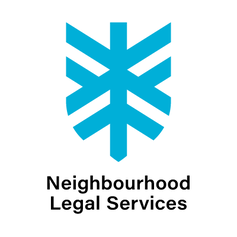|
There are about 550 non-profit housing co-operatives in Ontario with 44,000 member households representing about 125,000 individuals (Note: a member of a co-op is similar – but not the same as – a “tenant” in a rental housing situation). They are presently governed by the Co-operative Corporations Act, 1990. In April this year the government introduced Bill 65, the Non-Profit Housing Co-operative Statute Law Amendment Act that is set to amend both the Co-operative Corporations Act and the Residential Tenancies Act. Both co-op housing providers and co-op members largely agree that the current legislative framework for co-ops is outdated and needs to be overhauled to make legal proceedings with respect to co-ops more accessible, quicker, and cheaper. However, the problem with Bill 65 is it’s proposed amendments are one-sided and grossly favour the interests of co-op housing providers over the interests of co-op members engaged in litigation with the co-op.
Under the proposed law co-op evictions will no longer be brought to the Superior Courts. Rather co-ops will apply to the Ontario Landlord and Tenant Board (the tribunal that currently deals with most landlord and tenant cases in the province) and take advantage of the Board’s speedier and cheaper process. Standing alone, we believe this change is for the good. However, the proposed legislation does not address the problem that members of co-ops face in making applications to address any of their own issues, such as lack of maintenance and repairs or harassment by the co-op or its employees. They are not able to do this under the Co-operative Corporations Act, and they will not be able to under the new regime proposed by Bill 65. Furthermore, members of co-ops are not permitted to raise these issues as defences to eviction applications, putting them at a serious disadvantage vis-à-vis co-ops, as well as tenants living in rental housing. Thus co-op members will be left without a substantial defence to eviction proceedings and will need to start entirely separate court proceedings to address something as insubstantial as, say, a leaky toilet. Practically speaking, this leaves co-operative members without any effective remedy for a co-op’s failure to meet its legal obligations, since raising these issues through the courts is often complex and can be very very expensive. In one eviction case legal costs awarded against co-op members were as high as $40,000! While Bill 65 allows co-ops to go to the Landlord & Tenant Board for eviction on any grounds contained under the Residential Tenancies Act, it also allows co-ops to make bylaws creating new grounds of eviction. However to pursue such evictions co-ops will have to go through the courts rather than the Board. Given that the Ministry of Municipal Affairs and Housing has itself acknowledged problems with the “costly and time-consuming” process in the Superior Court, the rationale for continuing this option seems counter to the point of the other amendments. Further, a check on co-ops making arbitrary decisions is presently found in the right to appeal a co-op Board of Directors’ eviction decision to the entire membership of the co-op, where every member of the co-op votes on whether or not to evict. Bill 65 does away with this important safeguard and may have the effect of undermining the democratic nature of co-op housing. There is another problem. Because now everyone looking for subsidized housing has to be placed through Toronto Social Housing Connections many co-op residents are there more because they want affordable housing than because they want to live in a co-op. Many do not understand that by choosing to live in a co-op they no longer have the rights they used to have as tenants. Bill 65 adopts some of the worst aspects of the current co-op eviction system and the eviction process through the Landlord & Tenant Board. The Ministry of Municipal Affairs and Housing itself stated in 2009 that currently the courts see about 350 co-op eviction applications each year. It went on to state that this figure is expected to triple once the eviction process becomes faster and cheaper. The damaging effects of this increase in eviction applications could potentially be offset by allowing co-op members to raise all possible defences before the Landlord & Tenant Board and by also allowing them to similarly take advantage of Board’s process to bring their own applications. As it stands, there is a danger that evictions will cease to be a remedy of last resort for co-ops and will instead become a management tool as it has in the case of rental housing. A former Ontario Ombudsman once called the Landlord & Tenant Board an “eviction factory”. Denied procedural and substantive rights at the Board, what chance do co-op members have when they go through the “eviction factory” with one arm tied behind their backs? Comments are closed.
|
The NLS BlogOur blog shares information with our community on legal developments and other important issues. As such we hope you'll find this blog informative - and maybe even fun. Categories
All
|
Powered by
 Create your own unique website with customizable templates.
Create your own unique website with customizable templates.
 Create your own unique website with customizable templates.
Create your own unique website with customizable templates.

